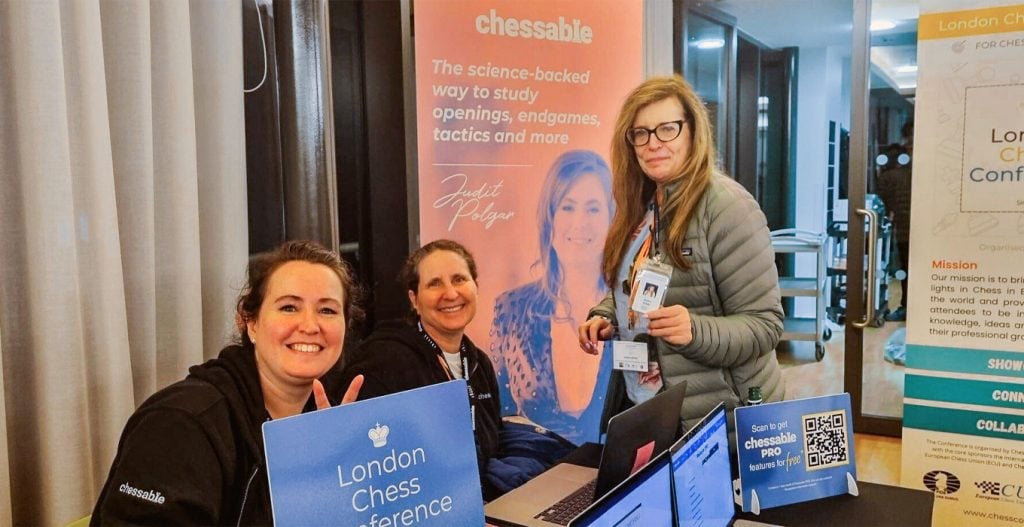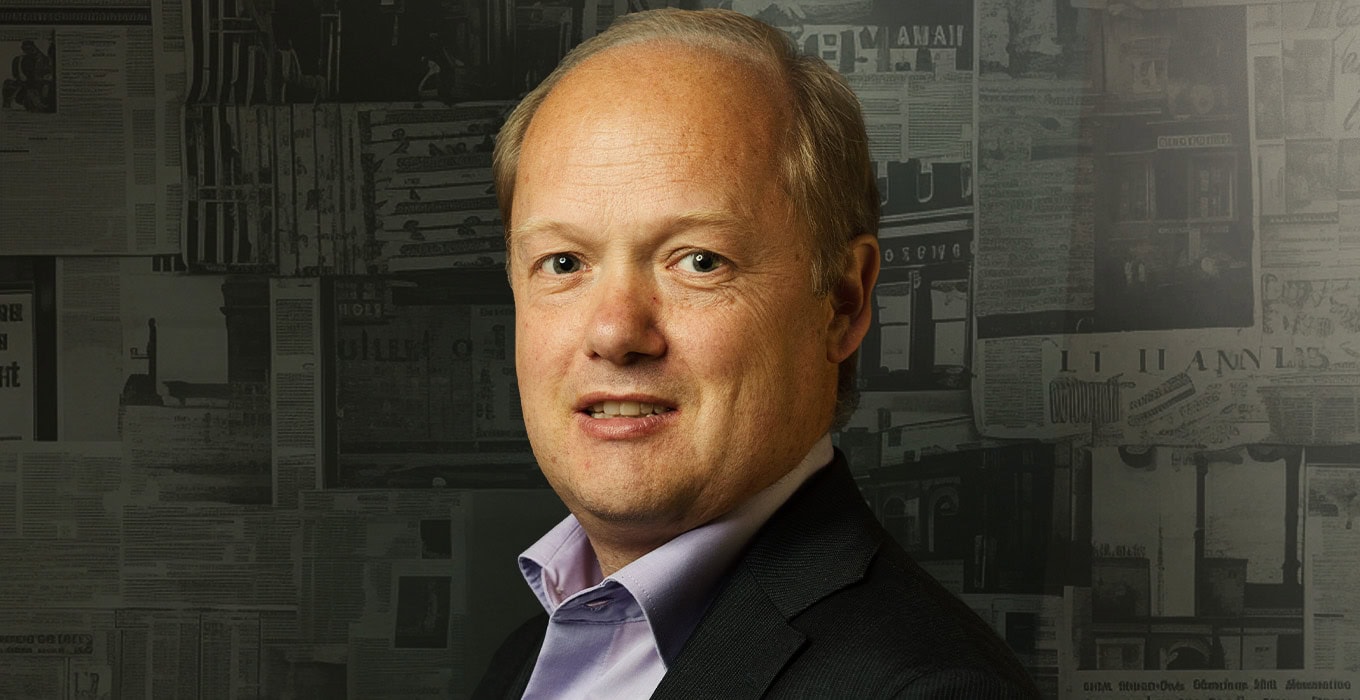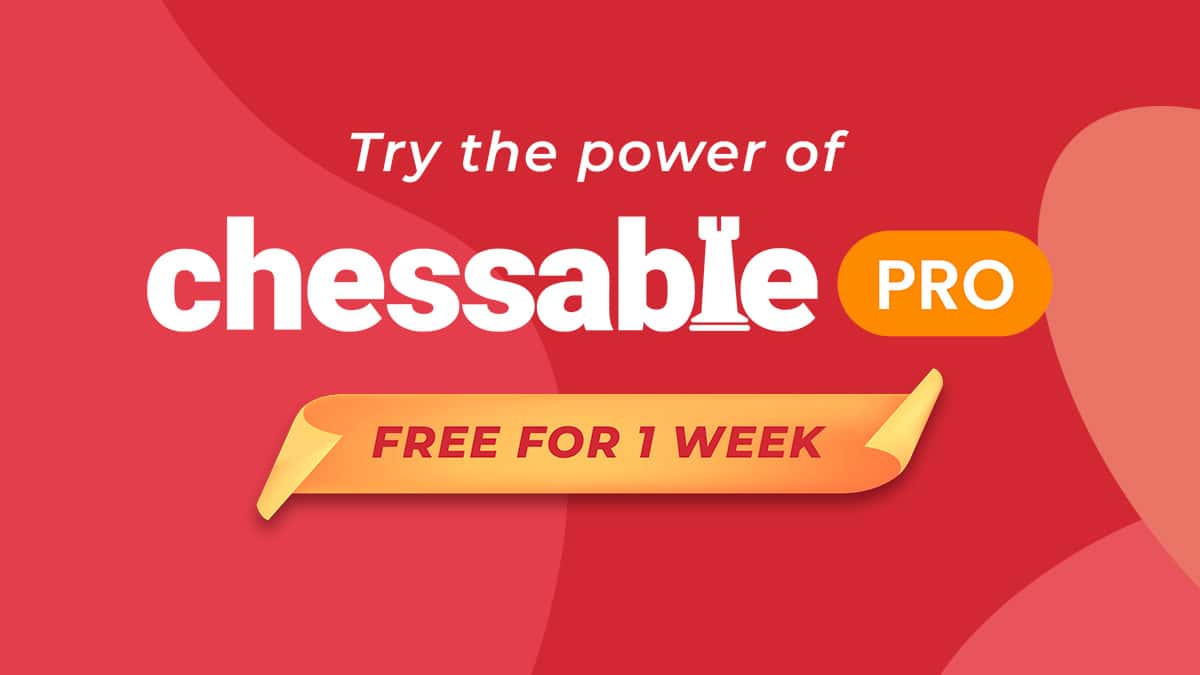The London Chess Conference is one of the rare moments in the chess calendar when experts in the game gather to share their knowledge and experience.
Guests come from around the world to benefit from the insights on offer. Indeed this year, the first in-person event since 2019, attendees flew in from far-flung places such as Botswana, Hong Kong and the United States of America.
The theme for the 2023 conference was Chess and STEM (Science, Technology, Engineering and Mathematics) – a subject that couldn’t be closer to Chessable’s heart.
As conference director John Foley put it: “We [the attendees] believe that chess has a lot more to offer than a hobby game, or even a competitive esports. We believe that chess can make a substantial contribution in education.”
With that in mind, Chessable provided some of our finest experts to deliver talks on how our platform is powering chess education.
Chessable’s Chief Science Officer Alexey Root, Science Project Manager Karel van Delft and WIM Luciana Morales spoke on different aspects of chess and learning.
We also ran into some familiar faces, such as IA Sophia Rohde, who uses Chessable with her pupils at Columbia Grammar and Preparatory School in New York, and Chessable’s 2022 Community Author of the Year Can Kabadayi:
Met some very nice people @LondonChessConf
— Chess Philosopher (@Kabadayichess) March 20, 2023
Even @Chessable was there! pic.twitter.com/ycA4aJPJ7r
On Friday, the presentations focused on the use of chess as an educational tool in early years learning. Playful learning was the watchword, with fascinating talks from, among others, Ralf Schreiber, the founder of Schach fur Kids in Germany and two Greek teachers Kostas Giouvantsioudis and Eirini Mousiadou.
I learned a lot about chess in schools today from the talks at the @LondonChessConf ♟️ We stopped at the @chessable table for a chat with Alexey Root (and a free month of Chessable Pro! Thanks!) 💥 What a treat to have Christel Minne share her fantastic new book over lunch. pic.twitter.com/izfHFMw7Gg
— Melinda Wilde (@meltastic1_) March 19, 2023
Karel, who successfully taught his son Merijn, who is now an IM, ended Friday’s session with his talk on how chess can be used for personal development for youngsters and a look at the scientific research on the subject.
You can view his presentation from around 1hr 9mins here:
https://www.youtube.com/watch?v=HMVEksiVGt4&t=4515s
While the conference formally opened on Saturday, for two days on Chess and STEM, the main introduction and welcome was from FIDE, the world governing body of chess. FIDE provided an opening message from its president Arkady Dvorkovich.
Following a Saturday morning talk by Jerry Nash, the chairman of FIDE’s Chess in Education Commission, on how chess develops critical thinking, Alexey presented on the Chessable Research Awards. The Chessable Research Awards program gives money to undergraduates, graduate students, and faculty research sponsors conducting new or on-going chess-themed research.
Alexey, a WIM and former U.S. Women’s Champion, also teased the findings of a Chessable-funded study by Harvard University’s Dr. Mark Glickman and undergraduate Angela Li on Sex Differences in Chess Ability.
You can watch Alexey talk about 44mins in: https://www.youtube.com/watch?v=vzZ6P1W3MDU&t=2430s
Saturday ended with Chessable’s Luciana Morales connecting remotely to showcase the power of Chessable’s innovative Classroom videocall feature using, ironically, Zoom. Luciana is in charge of onboarding users onto the Classroom. Unfortunately, technical problems with Zoom meant that it wasn’t recorded.
Talks ranged from chess as playful learning with preschoolers learning to set up the board by racing, to how the game is being used to teach robotics in Sweden. Chessable reps weren’t the only members of the Chess.com family at the event. Mike Klein, aka FunMasterMike and Carey Fan, also dropped in to explain the success of ChessKid in scholastic chess.
Sunday’s sessions took on an international flavor with reports on education projects across Europe, South Africa, Pakistan, India and Armenia before the final session with a talk on the impact chess has made on incarcerated men in the Cook County Jail (Chicago, Illinois).
You can view all of Sunday’s sessions and the closing of the conference by Mr Foley here: https://www.youtube.com/watch?v=umO16FVLYok&t=125s
The 2023 London Chess Conference was held at the University of Roehampton in south west London and organized by ChessPlus. FIDE, the European Chess Union and the UK charity Chess in Schools & Communities sponsored the event, along with Chessable and other chess organizations. In total, there were around 120 attendees from 26 countries.





